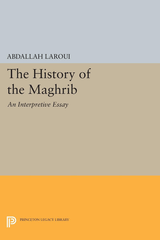
Courtesy of Penn Alumni Travel.

Photo by Dennis Sylvester Hurd. Used under CC by 2.0 license.
Morocco is a land of music. The CDs here have been selected to give you some idea of the diversity of music you will find.
First, we have a CD of Moroccan classical music entitled Musique Classique Andalouse de Fes, ensemble led by Ustad Massano Tazi. This music is supposed to have come to Morocco with the many Muslims who fled from Spain after the conquest of the last Muslim stronghold, the city of Grenada, in 1492. This is the origin of its name “andalousi” or Spanish. There is a set instrumentation of plucked and bowed strings, and a set repertoire based on musical keys/modes or noubas. This music is the soul of courtly Moroccan culture, and is esteemed in the same manner as Western classical music is.
Next is the popular group, Nass El Ghiwane on their CD La Legende. Formed in the late 1960s, Nass El Ghiwane are living legends, who have developed a compelling mixture of Moroccan folk forms and instruments with the intensity and musicianship of Western rock’n’roll. Their lyrics reflect political or social concerns. Their music is usually referred to as Chaabi, or popular. This CD dates from 1975, and is one of their best.
The last CD contains Gnaoua or Gnawa music. This is the music of Black Sufi brotherhoods, many of which are based in the towns of the edge of the Sahara. The music is percussive and repetitive, and is very trance-inducing. Despite this, Gnaoua is one of the major musical currents in Morocco. It is often heard at the international festival, Fes Musiques Sacree du Monde, which usually takes place in the summer.
Additional Music:
The Music of Islam and Sufism in Morocco - Recording includes music sung or chanted by various performers in Arabic from artists from the Islamic and Sufi traditions.
Morocco: Crossroads of Time - CD includes a wide array of Moroccan music, from ambient sounds of street markets and traditional tribal music to more contemporary Moroccan pop songs.
Songs and Rhythms of Morocco - CD includes traditional folk or dance music sung in multiple Berber dialects.
Moroccan Music in Film:

Gnaoua Music Festival by eatswords used under CC BY-NC-ND 2.0.
World Music: Musicians in Morocco is a film that explores the Gnaoua and World Music Festival in Morocco. This festival highlights the traditional and symbolic "gnaoua" music. Through interviews and footage from the festival, viewers are given a glimpse of the unique atmosphere of the festival and the transformation of the Essaouira port into a picturesque party zone. Moroccan gnaoua musicians are joined by international artists to make the festival a cross-cultural experience for attendees.
 The History of the Maghrib: An Interpretive Essay by
The History of the Maghrib: An Interpretive Essay by 
Arrival of a Caravan Outside the City of Morocco. Courtesy of commons.wikimedia.org.
 Five Eyes: Stories by
Five Eyes: Stories by  Berber Odes: Poetry from the Mountains of Morocco by
Berber Odes: Poetry from the Mountains of Morocco by 
Casablanca by Albert SH used under CC BY-NC-ND 2.0.

Moroccan Design by Mikolaj Pasinski used under CC BY 2.0
The film Ali Zaoua, Prince of the Streets, directed by Nabil Ayouche gives a realistic and moving portrayal of the plight of the homeless children, who roam the desolate slums of Casablanca. This is not a side of Morocco usually seen by tourists, but it is the reality of many of the modern urban areas of the country. The unlooked for victory is that despite their desperate circumstances, the children’s courage, playfulness and vibrant camaraderie come through so clearly. In Arabic, with English subtitles.

Djemaa el-Fna, Marrakesh by J Mark Dodds. Used under CC BY-NC-ND 2.0
Morocco: The Past and Present of Djemma el Fna is a film produced by Steven Montgomery that explores the history and culture of Djemma el Fna, a famous square in Marrakesh, Morocco. This square is a historic crossroad of Arab and Berber cultures and has stirred the imagination of Westerners for years. Montgomery's documentary helps capture the color, romance and spiritual atmosphere that brought many visitors, Edith Wharton, Eleanor Roosevelt, and Winston Churchill for instance, to marvel at its magic.